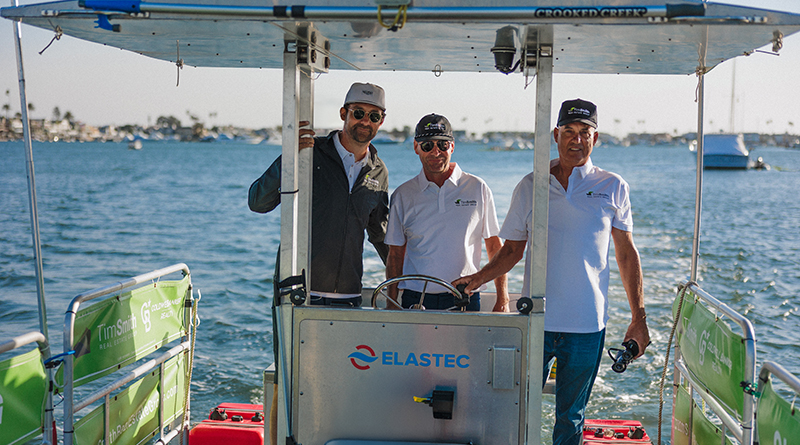 I own a boat that is registered with the California DMV. I recently left town for a couple of months, and I happened to get into a dispute with my marina manager a few days before my departure. When I returned, I was shocked to learn that my boat had been sold by the marina at a lien sale auction. I left a forwarding address with the marina before I left town, but I received no notice prior to the lien sale. What exactly are the notice and advertising requirements for a lien sale on a boat?
I own a boat that is registered with the California DMV. I recently left town for a couple of months, and I happened to get into a dispute with my marina manager a few days before my departure. When I returned, I was shocked to learn that my boat had been sold by the marina at a lien sale auction. I left a forwarding address with the marina before I left town, but I received no notice prior to the lien sale. What exactly are the notice and advertising requirements for a lien sale on a boat?

We have talked about lien sales several times in this column, but we usually focus on the foreclosure procedures for a lien or mortgage on a Coast Guard documented vessel. Our reader in this case is concerned instead about the lien sale procedures for a California, or “CF” registered boat, which vary considerably from the procedures for documented vessels.
Lien sales for CF registered boats are administered by the California Department of Motor Vehicles, pursuant to the guidelines set forth in the California “Boaters Lien Law” (CA Harbors and Navigation Code sec. 500 et. seq.). The various sections of the Boaters Lien Law provide the sole means for the enforcement of a boat lien in California, except that Coast Guard documented vessels are expressly excluded from those rules (see sec. 501(e) and 501.5).
The Boaters Lien Law differs considerably from the procedures relating to the enforcement of a lien against a documented vessel, in that the California procedure is a lot less expensive than the Federal procedure, and it requires the lienholder to have possession of the vessel prior to the initiation of the process (sec. 502 states the lien is “dependent upon possession of the vessel”).
The “possession” requirement is important because the lien cannot be enforced unless the boat is in the custody of the claimant. Under most circumstances, however, the law does not allow a claimant to seize a boat prior to obtaining a judgment at the end of a lawsuit, so it is very difficult for a claimant to get possession of the boat. As such, from a practical standpoint the Boaters Lien Law is implemented mostly by marinas and shipyards since they already have custody of the vessel. In contrast, a claim against a documented vessel is enforced though an expensive lawsuit in Federal Court that calls for the boat to be taken into custody by U.S. Marshals at the beginning of the lawsuit, regardless of who has possession of the boat prior to the lawsuit.
Our reader’s boat was apparently the subject of a lien sale under the Boaters Lien Law, and he has asked for information about the notice and advertising requirements under the law. The law requires notice to be delivered to the “registered owner” and the “legal owner” of the boat. Under California law, a “legal owner” is not actually an owner of the boat. Instead, a legal owner is a lender who has taken the boat as collateral for a loan, similar to a mortgage holder for a documented vessel. So notice of the lien claim and of the proposed lien sale must be provided to the owner and the lender, at the respective addresses that are listed in the DMV records.
Pursuant to sec. 503(f) of the boaters Lien Law, a lien sale must be advertised at least 10 days, but not more than 30 days, prior to the lien sale, in a newspaper of general circulation published in the county where the vessel is located. Don’t expect to see this notice in a full color glossy magazine advertisement. The “advertising” may consist of a notice published in the legal classified section of a newspaper.
The DMV website has a very comprehensive list of the steps required for a lien sale, and it is the best resource available for this kind of general information. The list is published online at tinyurl.com/op7qr75.
In our reader’s case, it is likely that he failed to have his mail forwarded for the time that he was out of town. Unfortunately there is no requirement for the lien claimant to prove the boat owner actually received the notice – only that notice was sent to the address on file with the DMV. As such, it is unlikely he will be able to unwind the sale, and his sole recourse may be to seek proof the boat was sold in a commercially reasonable manner and any excess sale proceeds over the amount of the lien are forwarded to him.
David Weil is licensed to practice law in the state of California and, as such, some of the information provided in this column may not be applicable in a jurisdiction outside of California. Please note also that no two legal situations are alike, and it is impossible to provide accurate legal advice without knowing all the facts of a particular situation. Therefore, the information provided in this column should not be regarded as individual legal advice, and readers should not act upon this information without seeking the opinion of an attorney in their home state.
David Weil is the managing attorney at Weil & Associates (weilmaritime.com) in Long Beach. He is an adjunct professor of Admiralty Law at Loyola University Law School, is a member of the Maritime Law Association of the United States and is former legal counsel to the California Yacht Brokers Association. If you have a maritime law question for Weil, he can be contacted at 562-438-8149 or at [email protected].
Ask your question online at thelog.com.








2 Responses
I bought a boat from pillar point harbor in a lein auction. I was told I have to wait 10 days to claim my vessel. 2 days after the auction I noticed a man standing by the boat I engaged conversation found out that he is the in law to the original owner that passed away. He is trying to claim the boat for himself. My question is can he legally do this?
an employee has a boat in storage in my yard for 3 years and was fired a year ago, how do I sell of get rid of it to pay for storage?